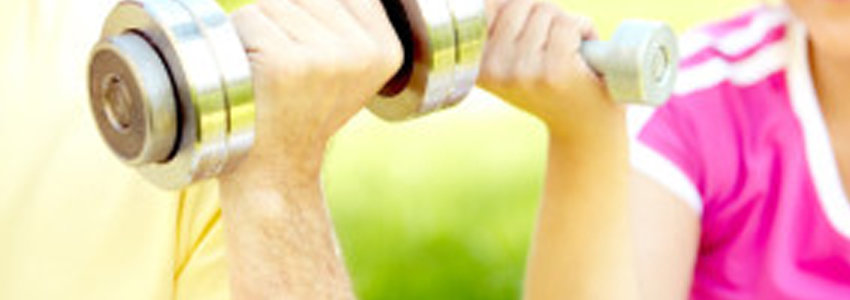If you are over 65, according to statistics, there is a one in three chance that you will have a fall within a year. And unfortunately the record shows that 30% of the time, elderly falls result in hip fractures, head traumas or lacerations.
But thankfully, studies show that regular exercise can reduce the chance of you falling, AND will reduce the chance of a fracture, if you do fall. (1)
Those are two great reasons, among the many, to get fit!
We All Fall Down, But Some Fall More Than Others
The most common fractures are of the spine, hip, forearm, leg, ankle, pelvis, upper arm, and hand. It’s hip fractures that you want to avoid at all costs – because they lead to mortality for 13% of victims within 6 months!
And did you know that 95% of deadly hip fractures are the result of a common everyday fall? To make matters worse, it becomes a vicious cycle, as the memory of a fall creates the fear of another. So peoples’ tendency after a fall is to reduce physical activities, which leads ironically to an even greater chance of a future slip up.
In 2010, older adults had 2.3 million nonfatal fall injuries, and more than 662,000 of them were hospitalized; 21,700 older adults died from unintentional fall injuries. (2)
5 Proven Ways to Prevent Falls
1. Regular Weight Bearing Exercise: When you increase your muscle strength, you increase your balance. That’s because your muscles help support and execute actions that your brain tells it to do. If you slip, your brain reacts and tells your muscles to catch your fall. If your muscles are weak, it will more likely fail at the task.
2. Review your Prescription and Over-the counter Medicines: Many medications may cause dizziness and/or drowsiness so ask your doctor or pharmacist to review your medications.
3. Get an Eye Exam: Of all 5 senses, sight is the most important for having good balance. Try covering one eye and standing on one foot. Hard to do you’ll find out, because your eyes feed so much physical information to you that acts as coordinates.
Good or bad eyesight is the difference between being graceful or clumsy. So get an annual eye exam to know if you need glasses. Or if you already wear glasses, a yearly check up will reveal if your prescription is right up to date.
4. Yoga: There are many health benefits from doing yoga, such as greater muscle tone; cardiovascular health; mental well being; increased circulation and improved complexion. On top of all that is a much increased balancing ability. Many yoga poses involve balancing in one position (I.E. on one foot) for 30 seconds or more. This strengthens the exact muscles and tendons that can keep you from falling. Ultimately this minimizes the damage and decreases the chance of fracture if you do fall.
5. Reducing Home Tripping Hazards: Improve the lighting in your home. Add grab bars inside and outside the shower and tub and next to the toilet. Add railings on both sides of stairways. Make sure area carpets are secured with two sided tape.
Injury Rates Fall As You Get Stronger
There are so many convincing reasons to do some weight resistance exercise. For instance, when you put stress on your bones and muscles, your body recognizes they are being called to duty. So your brain allots extra energy and resources to strengthen them, in anticipation of greater future stress. The result: stronger bones and muscles.
But on top of that, the latest research indicates that regular exercisers are less likely to be injured from a fall than sedentary folks.
That’s right – one study found that…
“Older adults who took part in an exercise program were 37 percent less likely to be injured during a fall compared to non-exercisers.” (3)
Regular exercisers reduced their chance of having a fracture from a fall – by 61%, and lowered the likelihood that the fall ended with a hospital visit – by 43%!
The program focused not only only weights, but also on disciplines that stress balance, such as Tai Chi and yoga.
Researchers say that the success for the regular exercisers is partly because they benefit from greater mental clarity and reflex. This allowed them a better chance to catch their own fall and reduce chance of injury.
If You Do Fall…
Even the most prepared and coordinated folk fall down sometimes, so it’s crucial to give yourself one more layer of protection from a life altering hip fracture.
To do that, make sure you get the correct amount of calcium, magnesium, trace minerals and vitamin D as that are absolutely essential to build your strongest bones.
But given the state of our mass farmed processed foods we now eat, it’s tricky (some say downright impossible) to get optimum amounts of these vitamins and minerals at the dinner table.
That’s why supplementing with an all natural, multi-mineral calcium supplement like AlgaeCal Plus is simple, safe and affordable insurance against life’s tumbles.
Sources:
1. http://www.bmj.com/content/347/bmj.f6234
2. http://www.cdc.gov/homeandrecreationalsafety/falls/adultfalls.html
3. http://www.bmj.com/content/347/bmj.f6234





Johnnie Draggoo
May 15, 2022 , 3:49 pmAppreciation to my father who informed me concerning this webpage, this blog is truly awesome.|